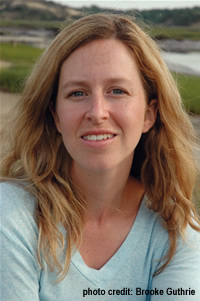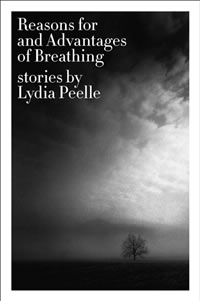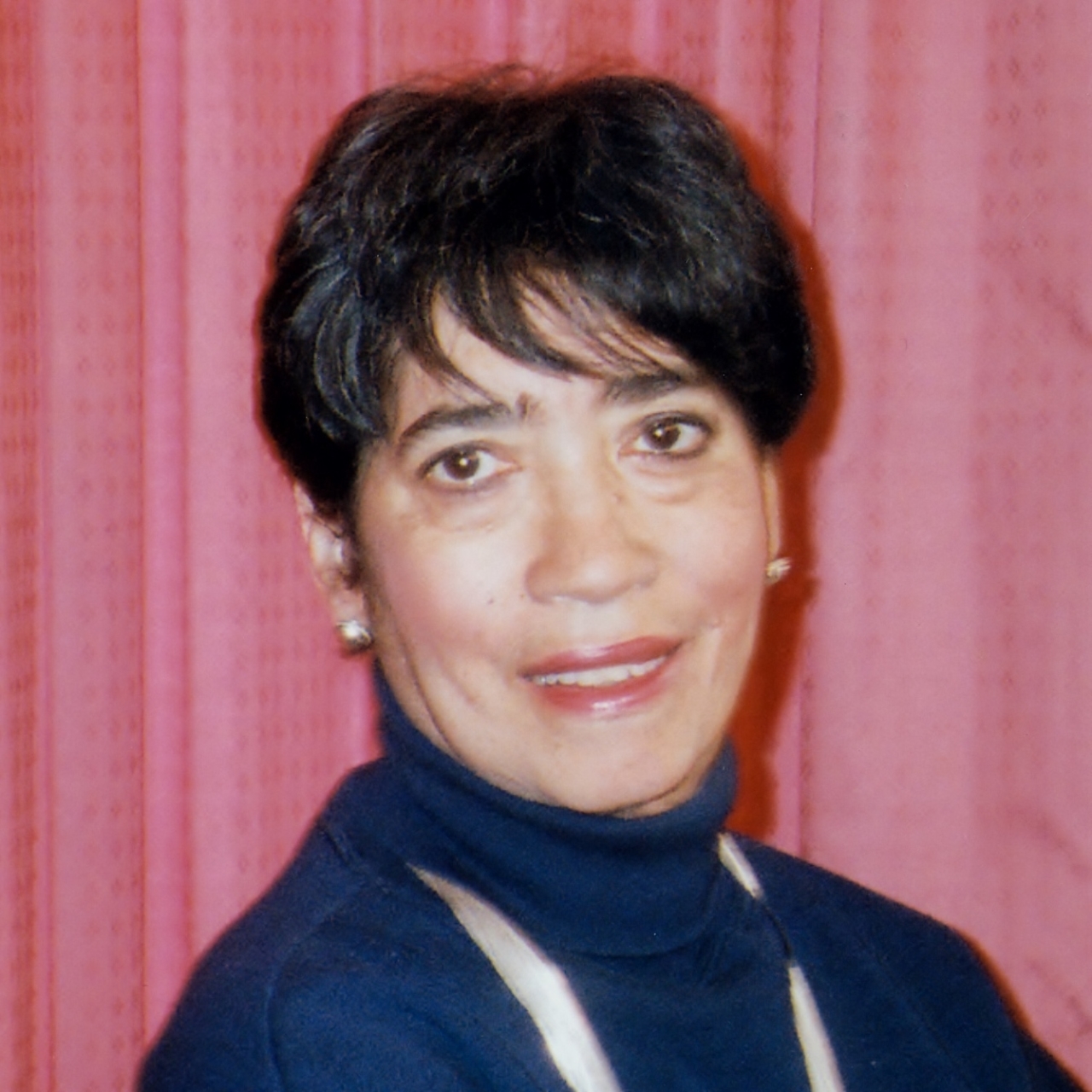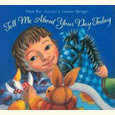Reasons for and Advantages of Fiction
Former Bredesen speechwriter Lydia Peelle discusses her debut story collection—and the pleasure, and usefulness, of writing what you don’t know
Last July, as part of the book tour for her debut story collection, Reasons For and Advantages of Breathing, Nashville resident Lydia Peelle was invited to participate in a “New Voices in Fiction” forum in Bryant Park, a lovely spot behind the New York Public Library’s main branch on Fifth Avenue. North Carolina native Wells Tower, author of Everything Ravaged, Everything Burned shared the podium, and moderator John Wray, author of Lowboy, kicked off the session with every Yankee’s favorite question for artists working below the Mason-Dixon Line: “Why are there so many writers in the South?” To her dismay, Peelle, who is not Southern, froze. “I couldn’t think of anything,” she confessed in a recent phone interview. “I let Wells handle that one.”
Here’s what a better question for Peelle might have been: how could a born-and-bred New Englander—a woman who grew up in Massachusetts, went to boarding school in New Hampshire and to college at Amherst—write a collection of stories that places her firmly among this generation’s finest Southern writers? “Everyone always says, ‘Oh my God, you’re from Boston; how can you write about the South?'” Peelle laughs. “But the fact is, being an outsider gives you a chance to see things that people who’ve lived somewhere their whole lives might miss. If I’d moved to South Dakota, I probably would have written about South Dakota.”
 South Dakota’s loss is Tennessee’s gain—in matters of fact as well as fiction. In April 2007, Peelle had just returned to Nashville after seven months in residence at the Fine Arts Work Center in Provincetown, Massachusetts, when a friend called and asked if she she’d like to apply for a job. In July, Peelle was officially hired as speechwriter for Tennessee governor Phil Bredesen, a job she held, and loved, for two years.
South Dakota’s loss is Tennessee’s gain—in matters of fact as well as fiction. In April 2007, Peelle had just returned to Nashville after seven months in residence at the Fine Arts Work Center in Provincetown, Massachusetts, when a friend called and asked if she she’d like to apply for a job. In July, Peelle was officially hired as speechwriter for Tennessee governor Phil Bredesen, a job she held, and loved, for two years.
A fiction writer in charge of official political discourse? “Everyone thinks it’s a joke, right?” Peelle says. “But the governor looked for a creative writer on purpose. What people remember about good speeches isn’t the content; it’s the imagery and the storytelling.” In other words, writing a speech uses the same creative muscles as writing fiction. “Believe me, I’m not political at all,” Peelle says. “I don’t even keep up with the newspaper! So I had so much to learn—not just about the state, but about politics and the world.” Despite (or perhaps because of) her inexperience, Peelle found being a rookie speechwriter “incredibly fun. One day I’d write an introduction for Dolly Parton, then one for Al Gore, then a statement the governor would give at the National Association of Nurses. It was always different and always exciting.”
Peelle’s domestic life—she has been married for almost eight years to Ketch Secor, lead singer and fiddle player in the genre-defying string band Old Crow Medicine Show—has a storybook quality to it. The New York Times, which covered the Secor-Peelle wedding in its “Vows” section in 2001, notes in its very first sentence that the couple’s romance “could come right from an episode of Dawson’s Creek.”
Indeed, the tale of their courtship is almost ridiculously adorable. Peelle and Secor met as fourteen-year-old freshmen at Exeter, dated sporadically through high school and college (“He was my first boyfriend, my first kiss,” Peelle told the Times) until Peelle broke off the relationship. Secor, “heartbroken,” dropped out of school and fled to a cabin in the woods near Butler, Tennessee, where he and a few friends started playing music full time. A year and a half later, in a grand romantic gesture, Peelle showed up at Secor’s house at two in the morning. When he opened the door, Peelle told the Times, “it was like we’d never left each other.” The rest of the article coos approvingly about the wedding details—guests sitting on muslin-covered haybales; a country band from Boone, North Carolina, playing at the reception.
… how could a born-and-bred New Englander—a woman who grew up in Massachusetts, went to boarding school in New Hampshire and to college at Amherst—write a collection of stories that places her firmly among this generation’s finest Southern writers?
“Oh, that ‘Vows’ piece,” Peelle laughs. “It haunts us. But marrying Ketch was what got me to Nashville. I had never been to the South before, and when I opened my car door after driving to Tennessee from Massachusetts, I felt like I was in such a different world!”
Secor, who grew up in Virginia, was immune to the culture shock that Peelle felt acutely. “For the first couple of years all I did was try to figure out how we were going to leave,” Peelle admits. “We lived outside of Nashville in Whites Creek, I didn’t know anyone, and I just couldn’t find my place there. And, finally, what helped was starting to write about it. It wasn’t a conscious decision, and it took a couple of years. ‘Mule Killers’ was the first story I wrote that explored the history of the place I was living, and it really helped me find my way.”
“Mule Killers,” the opening story in Reasons for and Advantages of Breathing, won an O. Henry Prize in 2006. “My father was eighteen when the mule killers finally made it to his father’s farm,” the story begins, describing “that one heartbreaking year” when mules all over the South were hauled to slaughterhouses, rendered obsolete, almost overnight, by tractors. In careful, dignified prose, Peelle deftly portrays a lost world at the precise moment of its vanishing. Maria Russo, writing in The New York Times Book Review, called the story “a finely tuned elegy for the old agrarian South … when stopping up emotions could easily seem like a matter of survival.”
“Find something you don’t know, and inhabit it,” could be Peelle’s motto.
Peelle’s own take on “Mule Killers” is more straightforward: “I wrote that story to try to imagine what it was like to be a farmer back then in Tennessee,” she says simply. “That’s why I write—to explore other people’s experiences. And I want my writing to be a dialogue with the place I live. That’s how I explore the world.”
Many young writers—Peelle is barely thirty—hew to the tired admonition, “Write what you know.” Peelle aims for the opposite, as other critics have noted: “Peelle vividly evokes a setting and brings its inhabitants—frequently odd, marginal types, social misfits, rural holdouts in a vanishing middle America—instantly and convincingly to life,” wrote Amanda Heller in The Boston Globe.
“Find something you don’t know, and inhabit it,” could be Peelle’s motto. In “Phantom Pain,” the story that follows “Mule Killers,” for example, the protagonist is a divorced, middle-aged male taxidermist with one leg. “Sweethearts of the Rodeo,” which comes next, is an impressionistic homage to two stable-besotted girls and their ponies during an Edenic season, “the last summer, the last one before boys.” (Like the title story, it won a Pushcart Prize.) “Reasons for and Advantages of Breathing” begins, “I met the herpetologist on the bus,” while “Shadow on a Weary Land” opens with, “It was Frank James, not Jesse, who buried the treasure in Brown’s Ridge.”
 Reasons for and Advantages of Breathing contains only eight stories, but their range is astonishing—the diversity of characters is matched by the diversity of the stories’ settings—urban winter, sun-parched country summer, new South, old South, Midwest, North. “I’m not always successful,” Peelle confesses. “There was one story about a sharecropper in Mississippi in 1927 that never made it into the book. I was fascinated by the subject, and I worked on it for years, but in the end I had to admit that I just couldn’t get into that character’s head.”
Reasons for and Advantages of Breathing contains only eight stories, but their range is astonishing—the diversity of characters is matched by the diversity of the stories’ settings—urban winter, sun-parched country summer, new South, old South, Midwest, North. “I’m not always successful,” Peelle confesses. “There was one story about a sharecropper in Mississippi in 1927 that never made it into the book. I was fascinated by the subject, and I worked on it for years, but in the end I had to admit that I just couldn’t get into that character’s head.”
For the past year, Peelle has been writing a novel. Though she’s wary of revealing too much, she will say that it’s set in Tennessee in the years just before the First World War, and that she’s presently “farther along than she thought she would be,” despite having to put things on hold for her book tour. (This month, book tour behind her, she heads to Yaddo for two weeks of concentrated attention to the novel.) “Writing a novel is totally different from writing stories,” she explains. “I could work on stories in the mornings or evenings, but that approach doesn’t work with a novel. A big reason I decided to leave my speechwriting job was so that I could fully commit to my book’s characters—I really need to spend time with them every day.”
Neverthless, the book tour (tongue-tied moments in Bryant Park notwithstanding) has been “wonderful,” Peelle says. Secor and Old Crow Medicine Show were touring simultaneously—though Peelle and Secor have rarely passed through the same city at the same time. “We’ll have to coordinate a little bit better in the future,” Peelle says, noting that they missed each other by mere days in city after city all summer. (They intersected once—in Boston, fittingly enough, where Peelle was able to take a break from being a public figure herself and join the band’s audience at House of Blues.)
“Writing is such a solitary endeavor that it has been great to crawl out from under my rock and meet people,” Peelle says. “And it’s so affirming to realize I have readers! Though I must admit, I feel a little bit like an imposter sometimes.”
She shouldn’t. Reasons for and Advantages of Breathing is, quite simply, phenomenal.


